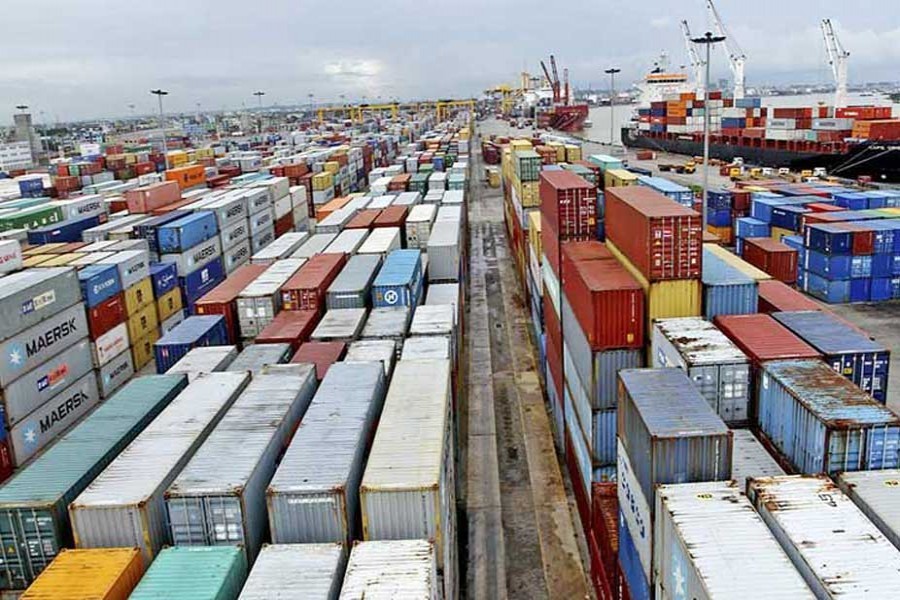The country's premier seaport, the Chattogram (Ctg) port's facilitating role in Bangladesh's external trade cannot be overemphasised. In keeping with the growth in import and export in recent times, the volume of cargo being handled by the port has also increased manifold. The good news is that to increase the port's container storage capacity, the Chattogram Port Authority (CPA) is learnt to have taken some measures such as expanding the harbour's yard space. As a result, the CPA claims, the Ctg port in its present shape is now able to handle up to 4.0 million Twenty-foot Equivalent Units (TEUs) of containers annually. To further increase its capacity, the port authority is also reportedly in the process of importing new equipment necessary for the purpose.
So far so good. But at the same time, it will be important to keep in mind that the volume of external trade will see a qualitative leap as soon as the country attains the middle-income status. In that event, the Ctg port's capacity and efficiency will also be required to be enhanced in a big way. In this context, as estimated by the CPA, the Ctg port handled last year over 3.11 million TEUs of containers which is the highest ever. The number even outstripped the highest pre-pandemic time figure of around 3.0 million TEUs in 2019. Obviously, the record is uplifting. Even so, this is hardly flattering seeing that the port's ranking among the 100 busiest container ports of the world, according to the Lyod's List, is at present 67th in the aftermath of the pandemic. So, to meet the international standard, the Ctg port's performance in terms of its container-handling is still a long way to go.
Against this backdrop, leaders of the Bangladesh Garment Manufacturers and Exporters Association (BGMEA) in a recent meeting with the CPA stressed the need for further increasing the capacity and efficiency of the Ctg port. Especially, the point the BGMEA leaders stressed is that the service of the port should be faster so they might ship their cargo in time to the satisfaction of their international buyers. This is an issue of our exportable commodities' competitiveness in the international market. Since the Readymade Garment (RMG) products constitute about 84 per cent of the country's export, the apparel sector's requirements relating to Ctg port's service actually reflect the country's overall export needs, at least until now.
In this context, though the apparel sector leaders expressed their happiness over the service so far rendered by the Ctg port, their observations about the port's efficiency and capacity are also indicative of the port's present limitations. With further expansion of the external trade once the country is able to substantially diversify its export basket, the pressure on the port's service delivery ability will obviously multiply.
Given the country's present pace of economic growth, the CPA will be required to redouble its efforts to turn the Ctg port into one of the highest ranking seaport according to the Lioyd's global list. At this point, the government, in line with its current focus on communications sector mega projects like the Padma bridge, metro rails, etc, should better include Ctg port as a high priority infrastructure project and allocate matching resources for it. This is to ensure that the country's principal seaport is able to meet the demand of the time.


